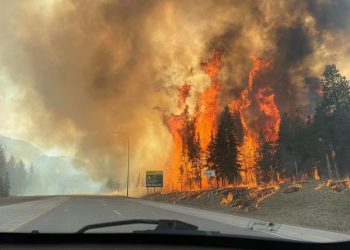India and Pakistan have escalated tensions with a deadly terror attack and military strikes in the disputed Kashmir region, drawing calls for restraint from world leaders, including U.S. President Donald Trump. On April 22, 2025, gunmen killed 25-26 civilians, mostly Indian tourists, in Pahalgam, Indian-administered Kashmir, marking the deadliest assault since the 2008 Mumbai attacks. India accused Pakistan of backing the Resistance Front, a Lashkar-e-Taiba offshoot, claiming intelligence warned of imminent attacks. Pakistan rejected the allegations, leading India to suspend a 1960 water-sharing treaty, expel diplomats, and close borders.
On May 7, 2025, India launched Operation Sindoor, a 25-minute bombardment targeting nine sites in Pakistan’s Punjab region and Pakistan-administered Kashmir. The strikes hit alleged camps of Lashkar-e-Taiba, Jaish-e-Mohammed, and Hizbul Mujahideen in areas including Bahawalpur, Sialkot, and Muzaffarabad. India described the operation as preemptive, aimed at terrorist infrastructure, but Pakistan condemned it as an “act of war,” according to Al Jazeera. Pakistan reported 21-26 deaths, including children in a Bahawalpur mosque, and claimed to have shot down five Indian jets and a drone. India has not confirmed these losses and reported 7-10 civilian deaths from Pakistani shelling along the Line of Control, the border dividing Kashmir.
The operation, broader than India’s 2016 and 2019 strikes, reached Pakistan’s International Border, signaling a stronger response. Pakistan, denying terror camps, insisted civilian areas were hit. Both nations, each holding about 170 nuclear warheads, face significant risks, as Pakistan lacks India’s pledge against first nuclear use. Kashmir, split since the 1947 partition, has triggered wars in 1947, 1965, and 1999, with both countries claiming full control. India’s 2019 revocation of Kashmir’s autonomy deepened unrest, contributing to a crisis now seen as the most severe since 2002, with potential for a limited conventional war.
World leaders urged de-escalation. The UN called for “maximum military restraint,” as noted in The Guardian, while China voiced regret and the UK offered diplomatic support. Airlines halted flights to Pakistan and northern India. Trump described the violence as “a shame,” stating, “I just hope it ends very quickly,” as reported in Reuters. Secretary of State Marco Rubio contacted national security advisers from both nations, urging open communication to prevent escalation, according to Reuters. The U.S., a partner to India and ally to Pakistan, seeks a peaceful resolution despite other global priorities.
In Pakistan, public support for a military response grows, especially in Punjab, where anti-India sentiment runs high. Residents of Muzaffarabad fled to hills during the strikes, reporting homes shaking from explosions. With shelling ongoing along the Line of Control, diplomatic efforts are critical to prevent a catastrophic clash between these nuclear-armed neighbors.



























